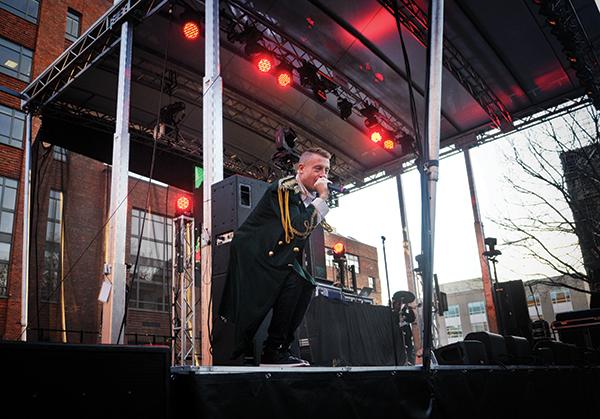Beyonce recently released a self-titled feminist album. Lorde is bucking conventions to write music that empowers young women. Nicki Minaj has carved out a place for women in the rap world.
All in all, it’s a great time for women in music. Female artists are breaking into every genre and writing mainstream feminist anthems.

But this progress won’t be apparent to an audience at Spring Fling this year. In fact, the lack of female representation on the stage in University Yard at Program Board’s annual concert is an undeniable trend: Only one female act has headlined Spring Fling since 2000. The campus’ other major concert event, Fall Fest, hasn’t had a female headliner in at least the last 15 years.
Spring Fling has been dominated by acts including Kanye West, Childish Gambino, Macklemore and, this year, Jay Sean. In the last 13 years, the only female artist to headline the University’s biggest musical event was Regina Spektor in 2007.
Even though Program Board tried to secure some female artists this year, like rapper Angel Haze and the indie band Haim, it’s still a shame that we won’t see a woman on the stage, especially at such a major GW event.
The discussion around women in music is changing, and by not having female artists at Spring Fling, we run the risk of acting tone-deaf. Spring Fling is one of the few events that nearly the entire student body cares about, making it the perfect opportunity to make a statement. It’s a chance to demonstrate equality and start a new conversation.
It’s important that women are viewed as capable of headlining, especially at Spring Fling. Choosing a female artist would imply that GW is interested in what she has to say, especially after the Program Board has started choosing artists with progressive messages and lyrics in recent years.
And although it’s nearly impossible for GW to get the big female acts that come to mind, there are plenty of up-and-coming artists that could make our Spring Fling less one-sided.
It is true that men – like a few of GW’s previous performers, including Talib Kweli and Macklemore – can be feminists and stand up for women’s rights. But there’s something valuable in receiving those messages from women instead of assuming that we need male musicians to speak for us.
The bottom line is that GW’s student body is diverse in its music preferences, so not everyone will be happy with any decision.
But mixed gender representation at Spring Fling is important: It affirms to students that we can be successful across all fields regardless of if we’re male or female. It shows that female performers are interesting and worth watching for their musical talents and pop prowess.
Sarah Blugis, a sophomore majoring in political communication, is a Hatchet columnist.





